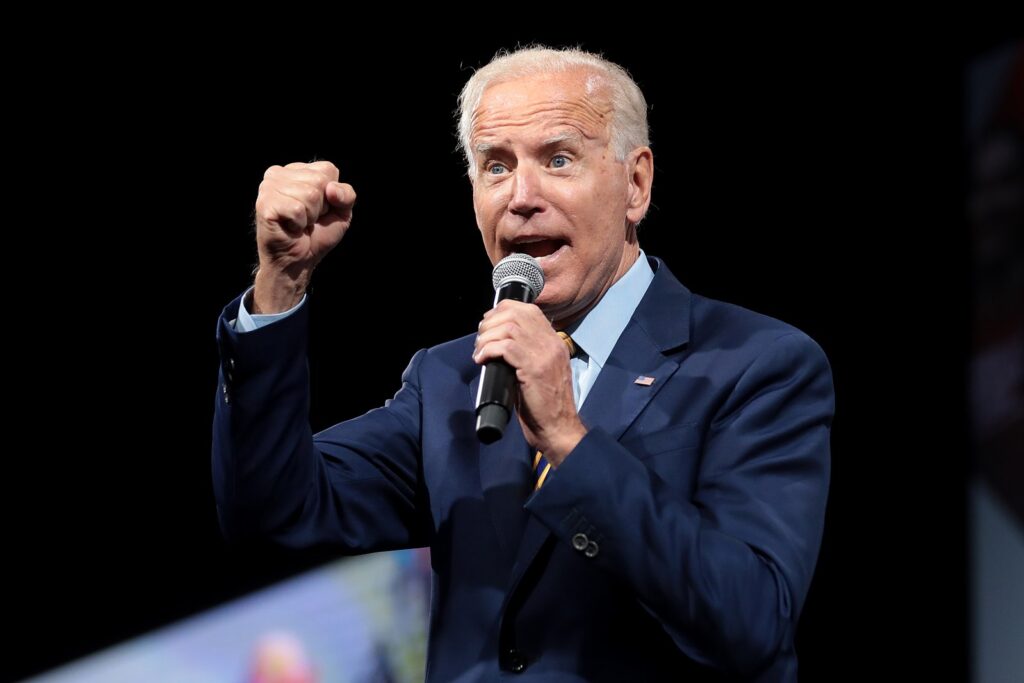A well regulated Militia, being necessary to the security of a free State, the right of the people to keep and bear Arms, shall not be infringed.”—Second Amendment to the U.S. Constitution.
President Joseph R. Biden Jr. recently announced his determination to use his powers as the chief executive of the federal government to infringe upon the right to keep and bear arms. This is a profound violation of his oath to uphold the Constitution.
It also perpetuates an attitude about the Second Amendment that was prevalent in state and federal officeholders in both major political parties from the FDR to the George W. Bush eras. That attitude was based on a misreading of the Second Amendment, which characterized the right to own a gun as a collective and not an individual, personal right. In 2008, the Supreme Court corrected that misreading.
Here is the backstory.
In the mid-1930s, Jack Miller reduced the size of his shotgun by three inches and transported it in his automobile from Oklahoma to Arkansas. The FBI got wind of his travels and stopped his car and searched it. When they saw Miller’s sawed-off shotgun, they arrested him and charged him with violating a 1934 federal statute that prohibited the transportation of shotguns across state lines with a barrel below certain lengths. The shotgun was lawful in Oklahoma and Arkansas. The offense consisted only in its interstate transportation.
Miller acknowledged having done what the government accused him of doing, but he challenged the constitutionality of the statute under which he was indicted. A federal trial judge in Arkansas agreed with Miller and invalidated the portion of the 1934 federal statute that prohibited transporting otherwise legal weapons from one state to another. The judge ruled that Congress had infringed upon Miller’s individual right to keep and bear his lawfully owned sawed-off shotgun.
The feds appealed this decision directly to the Supreme Court. By the time the lawyers’ briefs were due at the court, Miller himself was nowhere to be found and the lawyer who represented him in Arkansas was no longer on the case.
So, the Supreme Court, with only the brief of the federal government in hand and only federal prosecutors present at oral argument, unanimously ruled in 1939 that the statute was constitutional because the Second Amendment protected only the collective rights of state militias to keep and bear arms—not the rights of individual persons to do so. Since Miller’s weapon was not state-issued and since Miller was not in any state militia, the feds—and the states for that matter—were free to regulate and infringe upon this right.
This dreadful decision of one-sided origin opened the floodgates for Congress and state legislatures to enact all sorts of regulations of firearms, both rifles and handguns. The decision gave carte blanche to all levels of government to enact any anti-Second Amendment regulations for which there was political support, so long as the regulations did not interfere with state militias—today the National Guard.
There the law stood while the states and the feds enacted infringement upon infringement—including one championed by then-Sen. Joe Biden—with abandon.
Then, in the early 2000s, Dick Anthony Heller, a Washington, D.C., police officer who was authorized to carry his service revolver in public while on duty, applied for a permit to purchase and carry a privately owned handgun in his home for self-protection. The District of Columbia licensing authorities denied Heller’s request because D.C. law prohibited handguns in homes. Heller sued in federal court arguing that he had a personal right to own and carry a handgun in his home.
In a landmark 2008 decision, written by the late Justice Antonin Scalia, the court reversed the Miller case. Scalia wrote that the right protected by the Second Amendment is the ancient personal right to self-defense. Just as you have the right to punch someone in the nose who has punched you or is about to do so, you have the right, the court ruled, to protect yourself and your home using the same means as your potential attackers.
The court was not afraid of addressing our history, and it recognized that the United States was born in a bloody revolution in which the original 13 colonies fought a war to secede from Great Britain. Thus, the court held that the framers of the Second Amendment recognized that a second ancient purpose served by this right is resistance to tyrants when they take over the government.
The court called the origin of this right “pre-political.” That is a secular phrase for a natural right. Whatever one wishes to call it, the right does not originate with the government. Like all rights protected in the Bill of Rights, the Second Amendment offers a negative right. The amendment does not grant the right to keep and bear arms; rather, it negates the government from infringing upon this right that has existed in all adults—predating the government.
The law today is not what it was when Joe Biden came of age. Today, the right to keep and bear arms is recognized unambiguously as a personal, fundamental, pre-political, natural right.
This is not academic hairsplitting. If a right is personal or fundamental or pre-political or natural, then the government—state or federal—may not interfere with it absent due process. Stated differently, the government cannot constitutionally interfere with gun ownership by executive order or even legislation. It can only do so if the owner of the gun has used it to harm someone else, and then only after a fair jury trial.
Scalia also offered a practical observation: Can the government argue with a straight face that its armed police can protect us better than we can protect ourselves when armed? The answer is obvious.
COPYRIGHT 2021 ANDREW P. NAPOLITANO
DISTRIBUTED BY CREATORS.COM
